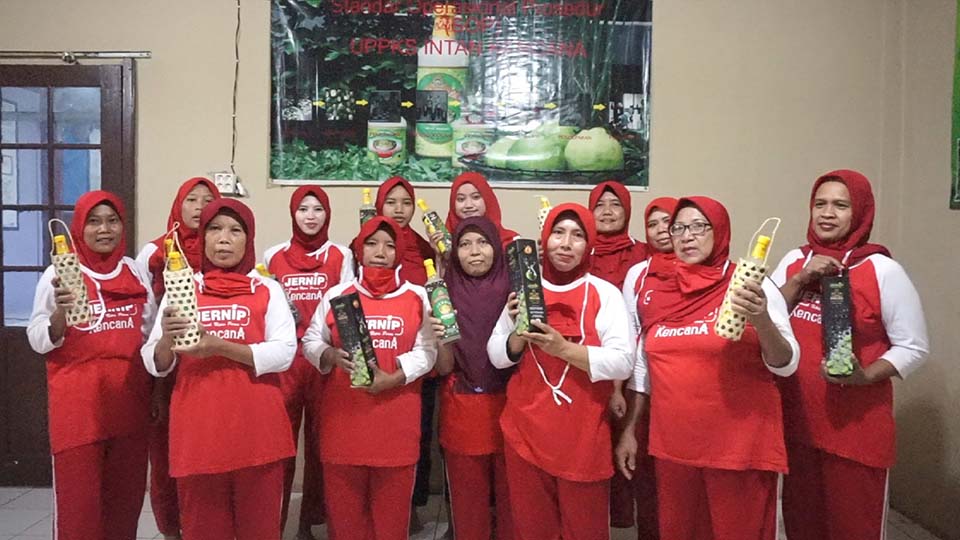Background
Clean water is not only a condition needed for life, but also an important factor for economic development: research indicates that economic benefits for every dollar (USD) invested in improved water supply and sanitation range from USD 3 to USD 34. To reap these economic benefits, to avoid negative effects on public health, and to preserve the ecological balance of flora and fauna, wastewater from domestic residences, industry or agriculture needs to be treated before being reused or discharged into the environment.
Wastewater can be cleaned up through physicochemical and/or biological treatment processes. Aerobic/anaerobic biological treatment is based on microorganisms consuming organic contaminants. Anaerobic treatment is generally considered more attractive than aerobic treatment since it creates less sludge, produces biogas as a by-product, and does not need energy-intensive oxygen generation. However, anaerobic processes produce treated water with lower quality compared to aerobic systems, so a combination of both is usually the best solution.
In the decades following World War II, Mexico’s water treatment capacity did not keep pace with its rapid demographic and economic growth. However, towards the end of the 1980s, driven by higher awareness of the importance of clean water and the North American Free Trade Agreement (NAFTA) negotiations, Mexico reinforced its environmental legislation, resulting in increased demand for water treatment plants.
To address the lack of experience of Mexican treatment plants with the more efficient anaerobic treatment processes, in 1986, the Metropolitan Autonomous University (UAM) and the Institute of Research for Development (IRD), a French public research institute working for the development of Southern countries, set up a research team. A year later, the Engineering Institute of the National Autonomous University of Mexico (UNAM) joined the team, bringing along experience in linking the public and private sectors.
Patents and Trademarks

The IB Tech® mark and logo are protected by Mexican trademark registrations #717688 and #758273
The collaboration between the three institutions resulted in the registration of two patents relating to a down-flow reactor for anaerobic or anoxic wastewater treatment, and to the production process of seed sludge for upflow anaerobic sludge blanket (UASB) reactors. The patent applications were prepared and submitted with the help of the UNAM’s Center for Technological Innovation (CIT).
“From a commercial point of view”, Mr. Adalberto Noyola, UNAM researcher and entrepreneur, explains, “the fact of having protected the technology makes it easier to negotiate a transfer of technology from UNAM to private firms as well as providing a good argument for convincing potential clients to use the technology”. The patent, Mr. Noyola adds, “gives a clear image of seriousness.”
To further raise the profile of the patented technologies, several trademarks were registered: BIODAAR® in 1991, BIOIMA® and BIODAN® (both in 1992), and BIOSOLAR® (in 1993).
Licensing and Partnerships

Dr. Adalberto Noyola is a full time researcher at the Engineering Institute of the UNAM and president of IBTech (Photo: Adalberto Noyola)
The UNAM’s Engineering Institute and the CIT licensed the technologies to nine Mexican companies. Non-exclusive licenses for 10 years were granted. In addition to the patented technologies, the licensing package included computer software, engineering manuals, a trademark and technical assistance for the implementation of initial projects.
In 1994, an early evaluation of the technology transfer revealed that the licensees did not promote the technologies actively and adequately. It was therefore decided to opt for a new commercialization approach: the creation of a spin-off company called Integración Biotecnológica S.A. de C.V. (IB Tech®), led by a group of Mexican academics and entrepreneurs. During the start-up phase, IB Tech, whose name is protected through a Mexican trademark registration, operated within the Incubator System for Technology and Science-based Companies (SIECyT) of the UNAM.
When IB Tech had its first important project contract signed, it graduated from the incubator system and started operating outside the university campus. IB Tech specializes in technologies for the treatment of wastewater mainly from industrial sources. The company manages every stage required in turnkey projects of treatment plants for municipalities and industries, from the characterization of the wastewater to be treated to the start-up of the plant. It continues to collaborate closely with the UNAM’s Engineering Institute both by hiring academic personnel and applying technologies developed by the Institute.
Business Results
Despite a challenging operating environment with changing environmental standards and strong competition from foreign companies, IB Tech has gained a solid foothold as an engineering and project management company not only in Mexico, but also in other Latin American countries, with its technologies being used inter alia in Argentina, Chile, Honduras, Nicaragua and Colombia.
Currently, IB Tech has a team of a dozen specialists with degrees in environmental, civil and chemical engineering. Customers include the “Grupo Bimbo”, the largest Mexican food corporation and the largest bakery in the world, FEMSA -Coca Cola, Compañía Cervecerías Unidas, the largest brewery in Chile, and several Mexican states and municipalities.
From University to Industry: Successful Technology Commercialization
This case of technology transfer from university to companies such as IB Tech can be considered a success since the technology was commercialized and used in various countries. A variety of factors contributed to this successful outcome: focus on research, intelligent intellectual property (IP) and business management with assistance from the CIT and SIECyT, a favorable business environment, and, last, but not least, IB Tech’s entrepreneurial spirit.



